Vietnam Veteran Ray Cocks, who’d eagerly enlisted in 1967, was forever changed by the realities of war. Our latest Exclusive is an essay by Vietnam veteran Ray Cocks, co-funded by Longreads Members and published in collaboration with TMI Project, a non-profit that brings empowering memoir writing and true storytelling workshops to underserved populations.

When I graduated high school in the spring of 1967, I’m determined to go to war. I enlisted in the army and prepared to leave, proudly, for Vietnam.
Before leaving, I encountered some older guys who were coming back home. They spoke out against the conflict, but I didn’t believe them. “Don’t go,” they told me. “It’s bullshit. It’s all bullshit.” I thought they were kidding to hog all the glory for themselves.
Nothing was going to stop me. Besides, what ever happened to “My country, right or wrong”?
***
To tell my story, It helps to back up and start with my father’s.
During World War II, he was a gunner’s mate, third class, on board the aircraft carrier Yorktown — the second one, commissioned after the first was sunk. He was on a five-inch cannon, information that meant little to me when I first learned about it as a kid. But then I wound up on a four-inch cannon in Vietnam.
My generation was raised by World War II veterans — the iron men who served on such ships and watched as their friends were burned to death, blown to hell, drowned, eaten by sharks, shot to pieces, literally. World War II, “the big one,” — a massive, global stroke of insanity that brewed from the ashes of World War I, the war that was to make the world safe for democracy.
These men went through the rest of their lives, for the most part, with untreated PTSD. My father was no exception.
***
When I’m growing up, my father was a man of few words. He showed me a picture of a kamikaze plane breaking apart from anti-aircraft fire as it passed harmlessly over the flight deck. No story, just the picture and the terse comment: “That’s a kamikaze.”
I am spanked, face-slapped, whipped with a leather belt, and rubber hose by my father. In the 1950s this doesn’t qualify as child abuse. It’s just the way you raise boys then. You raise them, brutally. You raise them for battle.
Even some of my fondest childhood memories were tinged with battle at the edges. I once sat next to Dad on the couch watching Navy Log, and Victory at Sea, two documentary shows. He knew I like them, so he lets me stay up past bedtime to watch with him.
Dad’s a union plumber and often worked away from home all week. When I was six, he took me along to his job sites. My brother Alan was just born and my new baby sister was soon to come, so it was a welcome adventure for me to go with him.
Nights, we stayed in a motel, and days I played in the muddy ditches of the construction site. I had a model helicopter and imagined I’m fighting in Korea. With the pilot shot down over Toko-Ri, it’s a failed rescue mission and the enemy soldiers are closing in.
After work Dad talked with his co-worker over highballs back in our room. I had one, too; it’s a ginger ale. “This is my son Raymond,” Dad says. His co-worker shook my hand. “Hello, Raymond.” I felt like a little man, special, comfortable, loved, and safe, next to this man who told me about the war and the navy, and took me on business trips. But I had a hard time understanding how this could be the same man who beat me.
I’m the second born of five, the oldest boy. We’re each three years apart, a good Irish-Catholic-repopulate-the-world fashion. But if being the first son in an Irish family is supposed to be some kind of exalted position, that fact was lost on me, as I was spanked, face-slapped (fore and backhand) whipped with a leather belt and rubber hose by my father. In the 1950s this doesn’t qualify as child abuse. It’s just the way you raised boys then. You raise them, brutally. You raise them for for battle.
***
Despite my father’s violence — maybe because if it — I idolized and tried to emulate him. In my adolescence, I read everything I could get my hands on about World War II. I built models of war machines. One Christmas my Mom and Dad give me a motorized plastic scale model of the USS Halibut, an assault submarine with nuclear missile capability used during the war.
It was very realistic — it dove and resurfaced, and could carry out a figure-eight maneuver cycle. I’d been building models since I was 14, mostly because of my best friend Barry, whose collection of model cars was displayed in a glass-enclosed cabinet in his room. His models were meticulously assembled and painted, some with their hoods open to show off engines painted realistically with chrome valve covers and air cleaners.
I’m going to Vietnam tomorrow and there is a very real possibility of being killed before I reach my 20th birthday. It’s the loneliest night of my life.
My car models often had windshields with glue smears – made worse by attempts to wipe the adhesive off with solvents. I soon branched out into war machines. The German pocket battleship Graf Spee, scuttled after its defeat in the Battle of Scapa Flow, collected dust and cobwebs on my dresser. The USS Forrestal, an American destroyer, was there also — “tin cans” they were called in the Navy.
I ask my dad, “What were destroyers for?”
“To make you seasick,” he answered.
Various fighter planes were scattered around my room – hanging from fish lines to give the impression of flight. The Halibut was to be the crowning glory though, a working submarine. I set the launch date for spring.
Finally, the big day arrived. It was sunny, and I’m at the creek behind my house. I turned the Halibut’s electric motor on and ever so gently set it on the surface of the water. It dove toward the bottom of the stream. I watched expectantly, but nothing happened. It just sat on the bottom. I reviewed every stage of building the model for a clue as to why it didn’t execute the figure-eight and then resurface triumphantly. I was perplexed! This disillusionment was miniscule compared to those I’ll experience in the years ahead.
***
It’s New Year’s Eve, 1967 — my last night before leaving. I’m in my bedroom at my folks’ house listening to a countdown of the top 100 tunes of the year on the radio, number one playing at midnight. I heard “Paint it Black” by The Rolling Stones and all of a sudden I’m aware of how alone I was. I’m going to Vietnam tomorrow and there is a very real possibility of being killed before reaching my 20th birthday. It was the loneliest night of my life — so far.
When I leave for Vietnam, I left behind Leila. She wrote me. I don’t write back. She wrote again, this time, a scathing letter telling me she’s giving up on me because I haven’t written her. I was sorry to lose her, but it was a relief. I’ve gone off to war, a rite of passage into manhood, and I didn’t want to be concerned with an idealized girl back home.
I was in Vietnam for 18 months with various artillery units. During my time there, I always tried to appear cool, while the truth was that I lived in a constant state of fear, anxiety and panic.
***
It’s late night at the Special Forces compound in Trung Lập, during my first tour. Nights we often fire our high explosives randomly into the jungle darkness, supposedly to interrupt enemy activity, to harass them. Shooting snakes seemed more likely.
Earlier in the day I noticed the hand brake on my side of the cannon didn’t seem to hold when we shifted the gun. I made a mental note to tell the chief, but then forgot.
The day passed as usual. The call for a fire mission came around midnight. I was the assistant gunner, and so would be the one to pull the lanyard. Everyone was walking away while I waited for the command to fire the last round. Nobody watched when I fired. The brake didn’t hold and the recoil rolled the gun up the back of my leg, throwing me flat on my face. I was pinned, and the crew was walking away. I wanted to say something but don’t didn’t speak until I could minimize the fear in my voice.
“Somebody wanna get this thing off me?” I called. Sergeant Anuska turned and saw me. He yelled, “Get up there, you guys, and move that bad thing!”
I was not hurt beyond a bruise and a scrape. A few jokes were made about a dust-off to base camp and cold beers. It was just another day.
***
Later, closer to the end of my second tour, we’re in a relatively secure fire base somewhere in the Central Highlands. Good weed was plentiful and I had a case of beer under my cot.
The more time I spent in Vietnam, the more I abandoned my pro-war stance. One day I’m riding shotgun in a jeep that ran over a boy, exposing the obscenely white bone of his ankle. While I stood in the swirling dust and the convoy roars past, I realized I was an unwelcome soldier in a foreign country.
One night I shuffled over to the mess hall. The new guy, Schroeder, is there playing a guitar and making up songs about anyone who comes in. He made up a song about me. It was funny. I was flattered and laughed. Then he made up a song about the captain when he walked in. I was alarmed. You can’t make fun of officers. But for some reason it was okay. I liked Schroeder, he’s a funny, cool guy. He didn’t seem like he belonged here.
I’m sick of the Army. I’ve been in Nam longer than some of these guys have been in the service. I’m coming unglued. I’m offered an allocation for an R&R to Taipei, and grab it.
A week of drinking, clean beds, showers, good food, and sex does me good. In Qui Nhơn, waiting to fly back to my unit, I heard we’ve been hit — and that Schroeder has been killed.
I ask Schroeder’s corporal, “What happened?” He looked at the ground and didn’t answer.
Schroeder was the third guy I made the mistake of liking, and he died the next day. I think, I’m a jinx. Don’t get near me.
The more time I spend in Vietnam, the more I abandoned my pro-war stance. One day I’m riding shotgun in a jeep that runs over a boy, exposing the obscenely white bone of his ankle. While I stand in the swirling dust and the convoy roars past, I realize I am an unwelcome soldier in a foreign country.
***
I left from Tây Ninh base camp, after a contentious week. A sergeant’s bullying had me screaming obscenities and threats of murder at him, resulting in my being demoted to private, yet again.
Me and another guy went out to the grass airstrip to hop a flight to Saigon on a Caribou cargo plane. It’s dusk. We’re standing at the dispatcher’s hut. “The last plane out is taking KIAs,” he told us, referring to bodies of those killed in action. “Otherwise, you’ll have to wait for the morning flight.” I look at the other guy. We shrug. I turned back to the dispatcher. “We’ll wait till morning,” I said, don’t want to fly with dead people. Too spooky.
But maybe we should have. Every day we waited for this plane. Now it’s in Hawaii. What’s the problem? I’m left to wait around in dress khakis with no weapons. What was I supposed to do if something happens?
There’s an air conditioned beer hall run by the Air Force, for sergeants and corporals. I stood at the door with my friend Harrop, and the guy there wanted to check our IDs, to make sure we’ve had the rank. I thought, Who needs this shit? From inside I heard a voice boom out. “Sergeant Cocks! Sergeant Harrop! How are you?”
The guy at the door turned around and says, “You know these guys, Sarge?” We’re in, thanks to our old chief, Sergeant Anuska. Cold beer, good talk. This was living large.
“I heard you was dead, Cocks,” somebody said to me. I replied that I am, being a wiseass, but it wasn’t too far a stretch from how I felt inside. Still, I knew I was luckier than some of the other guys. Ferraro and Johnson were both shot in the head. Some others were killed in action. But it looked as if most of my platoon had completed their year and was going home.
I’m waiting for the flight out of Tan Son Nhut airport – the freedom bird that’s going to carry me back to the world. There’s no tomorrow in Vietnam, just today, right now. Some time in a far off future is when you returned to the world, and life was supposed to begin again. It’s not a day I thought would ever come, the day I would leave Vietnam for home. I’m not ready for this.
Finally, the plane arrived, courtesy of Braniff Airlines. We got into formation, and roll was called. We looked at each other and tried to wrap up a conversation that had no ending. Somehow we agreed: this is something everybody should go through, and something nobody should go through.
***
When I returned home in 1969 the first question I’m usually asked was, “Were you at the front?” followed by, “Did you see any action?’ or, worst of all “Did you kill anybody?” All of these questions were asked with a pained look of concern. I got tongue tied.
“There is no front,” I started to say, but would have to explain the entire universe to make that simple point, and so I stopped.
After Vietnam, I was unrecognizable compared to the clean-cut boy the cops always let go before I left. There were the first attacks of malaria during my first month home. There’s the pistol stuck to the side of my neck outside a bar one night, and me yelling, “Shoot, motherfucker!”
I go underground for a quarter-century. Sure, I worked, I reproduced, I kept up outside-appearances. But inside, I’m dark. I look inside myself and see my heart is black.
Then, in my 40s, I landed in a detox and a 30-day rehab. I got sober. It’s like coming out of a trance, a state of suspended animation where I watched my own life, hypnotized, as if I’m an outsider.
From there, over many years, I slowly took steps to move myself ever further out of the trance. I attended retreats for veterans, and went to conferences where I learned about the fates of other veterans. One, held by the Equal Justice Foundation (EJF) is called “When Johnny Comes Marching Home…He Goes to Jail.”
According to a 2013 EJF report, more than 500,000 Vietnam veterans were arrested or incarcerated. It’s estimated that 100,000 Vietnam veterans are in prison today, and 200,000 on parole.
Suicide and homelessness were other common outcomes. According to the report, since 1975, nearly three times as many Vietnam veterans have committed suicide as were killed in the war. Suicide rates among Vietnam vets are higher than those among any other group in the United States.
These weren’t just statistics to me. They were borne out in my own family. I lost one brother to suicide after the war. My other brother is homeless.
Now, like my father and his peers, I’m wrestling with PTSD. But although I had long ago emulated him, I realized I am not my father.
I’ve felt torn for years about serving in an unpopular war, which the soldiers were blamed for losing. That has shifted into a sense of purpose. There is room for elder warriors like me. We still have a duty, one that goes beyond country. We have a duty to reveal the truth about war, to help younger veterans returning home, and to do what we can to bring about peace.
***
In 2014 I made my first of three trips to Vietnam. There were twelve in the group, including a few other vets — two others who served in Vietnam, one who served in Afghanistan.
Our Vietnamese tour guide, Anh, gave us background as we rode through the countryside past rice paddies, cemeteries, and villages. I watched all this from inside an air conditioned tour bus — a far cry from my recollections of bouncing along in the back of a “deuce and a half” loaded with ammunition and armed to the teeth, sweltering and covered in dust.
Anh described the conditions following the American departure: war with Cambodia and China, the re-education camps, refugee life, boat people, famine. Tens of thousands of people died of starvation.
There’s a service component to our trip. We’ve come to Vietnam in part to volunteer in health clinics. Members of our group offered chiropractic adjustments, massage therapy, aromatherapy, and whatever else they’re trained in. I played my guitar and sung.

We travelled to Nui Ba Den, the Mountain of the Black Virgin, a landmark during my first tour of duty in War Zone C, northwest of Saigon. There, on the mountain, we performed a memorial ceremony honoring the many who were killed there, on both sides.
Afterward, one of my companions handed me a small bird he’d purchased from a vendor for a dollar, buying the bird’s liberation. I held the bird close to my face briefly, then released it above my head. I can’t even begin to tell you what that felt like, watching as it flew straight up, then disappeared above the tree line, to complete freedom.
* * *
Ray Cocks had once considered becoming a career soldier. That all changed as a result of serving in the Vietnam war. After a life-long attempt to understand what went wrong, he is now engaged in validating the Warrior ethos in the traditional way of walking through life with integrity. This essay has been adapted from writings produced in TMI Project workshops. Editor: Sari Botton
Ray Cocks | Longreads | May 2017
Thank you for taking the time to read this. Should you have a question or comment about this article, then scroll down to the comment section below to leave your response.
If you want to learn more about the Vietnam War and its Warriors, then subscribe to this blog and get notified by email or your feed reader every time a new story, picture, video or changes occur on this website – the button is located at the top right of this page.
I’ve also created a poll to help identify my website audience – before leaving, can you please click HERE and choose the one item best describing you. Thank you in advance!

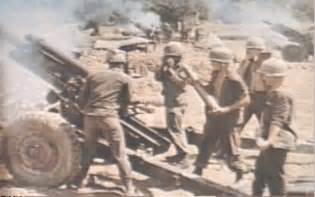
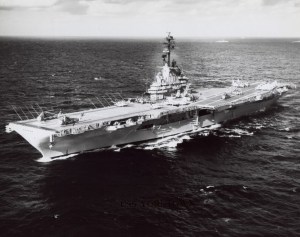

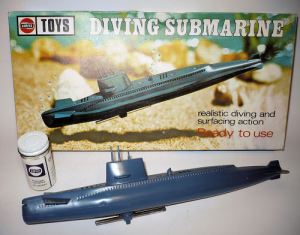
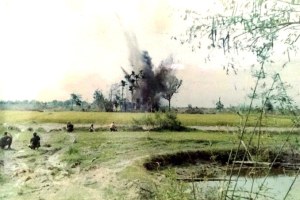
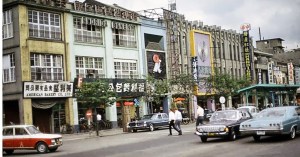

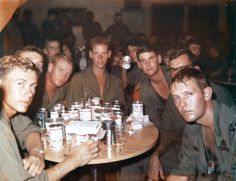



My name is Richard Kemp(know as the head) we had a very LONG week at the Black Virgin Mountain in1968 .As I rember a special forces camp was on top,they were nearly over run one night and we were brought in( 105 air mobile unit 1/5 art..
Fired all night for 2 nights.Middle of the monsoon seasons
Did not look like picture at all then.Im now 75 been married 54 yes this Dec
LikeLiked by 1 person
It was a good artical it kinda explains how I feel inside, dark,dead, and angry at the nation that disrespected and ignored me when I got home. I ‘ll survive but don’t know or really care about what’s happening in the future just each day as it happens.
LikeLike
Any comment is good. Especially when the comments do not, downgrade anyone.
LikeLike
Currently, I have no comment.
LikeLike
I have been Receiving “Cherries” Vietnam articles for 3 years & accidentally voted “AS LIKING THIS “GUEST” Author! “Private” Cocker. MY Father was one of the First UH-1″The New Huey’s” mechanics in “60” at FT Rucker Alabama! (where i was born in “62” His service was over in “64” so he completed his duty Just Before our Public Entry in Vietnam in “65”. I Did NOT Like ” The PRIVATES”Approval of “Turning Against the war! sure Lyndon Johnson/Clark Clifford & Gen. Westmorland The Most Disastrous american General (Since George Custer) made Fighting a very Difficult & Ungrateful war with there hands Tied! HOWEVER! “Private /Sergeant/Private Cockers father & there Generation DID NOT exactly have a “cake walk” & they did it Without “Bitching” & “Protesting by Throwing there Medels over the “WHITE HOUSE Wall! Make NO MISTAKE ABOUT IT! “THE BEST GENERATION” Gave Birth to the WORST GENERATION! & YOUR Generation is the “GIFT THAT KEEPS ON GIVING!” like in WASHINGTON DC ? Where your Comrades (& Great Leaders Like “HONOI JANE” & “TOM HAYDEN” & YOUR HERO Navy Officer “JOHN KERRY” in “turning Against The War (& Your Country) somehow Found All of his “MANY WAR MEDALS?” That he Threw “OVER THE WHITE HOUSE WALL” (on TV) in “71” Have Miraculously Found there way BACK TO YOUR GREAT LEADERS “OFFICE WHERE THEY’RE “PROUDLY DISPLAYED FOR ALL TO SEE WHAT A WAR HERO HE WAS?” (now that it’s popular?) This is The “ONLY” Article(of Cherries) to Which i have “Read” & Rubbed me the Wrong way? IT Broke my Heart To Witness The “FALL of SAIGON” in “75” on my 13th birthday april,30! & that over 58,000 lives were never allowed to “Bitch & Blame & Complain” Like only your Generation CAN! when they got home! however your generation Gave -us The Greatest “MUSIC” & MUSCLE CARS THIS WORLD WILL EVER SEE! Since 2/3rds of you are “GONE” there is only so much more of Destroying this countries “founding fathers Constitution” & What they Fought & “DIED FOR” that your “Protesting Generation can Tear down! so be PROUD! you “ALMOST” won your Second war! (of destroying your “Fathers Generations country” that they WON & UPHEALD their wars Defending our “RIGHTS” for The Rest of US Who Value It.
LikeLike
I am repeating, we are all different.
LikeLike
It’s fair.
LikeLike
The best thing is, we are all different.
LikeLike
I too feel exactly the same way as Ray and have returned to Vietnam over thirty times and where I returned from just three days ago. I served in the same area as you did Ray in the Tay Ninh area. On this trip I escorted three young boys for their parents, who live here in Kentucky, so they could visit with their grandparents in Vietnam. I’ve escorted friends and as well escorted a Vietnamese friend to the US. This trip was a little different in that I acccompanied or road along with a group of Americans on a medical mission trip. I did nothing other that sit around or visit the locals and played with the local children in the villages of places like Xuan Loc, Trang Bang and Bao Loc. In returning so many times and in the process meeting former enemies and their families I formed solid feeling. This country didn’t make a mistake, it made a selfish endeavor inwhich millions were killed and even up to today the world I paying for because of us. Case in point is Bush’s invasion of Iraq inwhich, we have now become our parents during vietnam. The people of this country say nothing despite the longest unwinnable war this country has ever been in with no end in sight. We, this country learned nothing from our invasion of Vietnam, Cambodia and Lao. In case the reader doesn’t know it there is an estimated 80,000,000 American made unexploded bomblets in Laos, we dropped! Yes we dropped! Vietnam made a big impression on my life and I won’t let this country forget what what a catastrophe we created, in Vietnam, Cambodia, Laos and Americans who served there! Shame on Americans!
LikeLike
great . its 2:30 am.im having nigjtmares agin wook up look ony device for conpanion . read yer story very the same as me . down to the beating s and playing guitar in nam. centrel highlands
LikeLike
Never have I tried to, play a Guitar. I like listening to them. The question is, what do I think about this article. Who cares, what anyone thinks about an article written in, here ? A Homey in my Company in the Nam. Had a Guitar shipped to him while he was, in the Nam. It helped pass the time. We he & I about 2 mos ago finally thru the computer, found each other. I wrote in here, my Company & location in the Nam. His dsughter saw it. Wrote back to, me. Now, he & I almost daily, communicate.
LikeLike
Good read – Paralelled my relationship with my father – also a ww2 Sailor (the USS Marblehead) my Vietnam experience was different however – see http://www.RichardLewisDixon.com for another good read!!
LikeLike
All I know is, my Uncle was in the Navy. During WW2 he was on board a ship when, it was hit. He was not killed however, he like many others, was wounded real bad. He finally healed. I have not seen him since 1947. End of, story. I am a, Viet Nam Vet. We had no business in that, crazy unwanted slaughter. I do not know if this is a good read, or not. It really makes no difference to, me. It is written, that is all that counts. OK
LikeLike
If my statement was not seen. Fine because I will mow, repeat it. We the Americans, had no business even entering Viet Nam. See, we all have opinions. Which in some cases, is something else we all have, 1 of. If you, do not understand ? Fine with, me.
On Wed, Jun 28, 2017 at 3:36 PM, Cherries – A Vietnam War Novel wrote:
> pdoggbiker posted: “Vietnam Veteran Ray Cocks, who’d eagerly enlisted in > 1967, was forever changed by the realities of war. Our latest Exclusive is > an essay by Vietnam veteran Ray Cocks, co-funded by Longreads Members and > published in collaboration with TMI Project, a non-p” >
LikeLiked by 1 person
Sure there will be some to disagree with, me. But, I will always say, we had absolutely, no business there.
LikeLiked by 1 person
Yes we all, have stories. My time in the Nam was from early in may, 9th I think. Been so long I’ve forgotten the actual day, I arrived there. Before I continue this. I will say, 1 thing. It was all for, nothing.
On Wed, Jun 28, 2017 at 3:36 PM, Cherries – A Vietnam War Novel wrote:
> pdoggbiker posted: “Vietnam Veteran Ray Cocks, who’d eagerly enlisted in > 1967, was forever changed by the realities of war. Our latest Exclusive is > an essay by Vietnam veteran Ray Cocks, co-funded by Longreads Members and > published in collaboration with TMI Project, a non-p” >
LikeLike